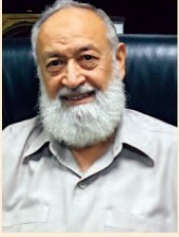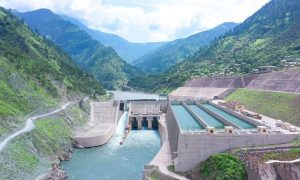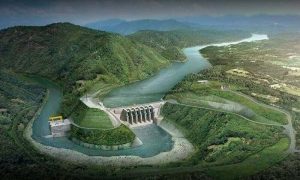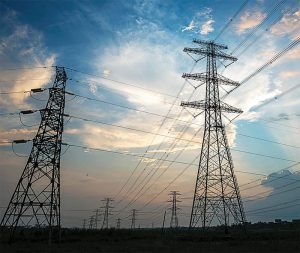By Engr. Mohammad Iqbal Mirza, CEO, Green Leaves
Quran says: Lo! The noblest of you, in the sight of Allah, is the best in conduct (49:13). What do we understand from this verse? Simply, whoever is the best in practices as ordained, is the most noblest. The concept of right and wrong, good and bad, acceptable or non-acceptable is a universal truth, despite all the ills and immorality prevailing in all societies around the globe. The reason being, we have been created by the One Creator, from the same material and in the same process.
There isn’t no doubt, since the first man on this planet, although human being has tried to give the best of his intellect to create a better to the best world in material science in creating comfort for himself, yet it lacks the beauty and essence of nature we see around. The comfort provided by an air-conditioner in summer and winter has no parallel to the natural cool breeze and natural heat provided by the nature. I find only one reason that the engineering practices are way behind of “The Best Practices” that has created a beautiful nature on this planet.
It is a general observation and expectation that if we buy an expensive thing right from a dress to a house hold items to an industrial machine, we expect it to give the best performance and run for a longer period of time. Allah the Almighty have created human being in the best of stature (Quran 95:3), so He expects human being giving the best of his potentials. The progress and development in every field of art and science owes to untiring thinking process and series of laborious experimentation by the man. The man has not stopped trying to improve the ambience and performance of products he is creating, because there is always a room for improvement and the room for improvement always owes to either deficiency in engineering practices or the engineering process developed, which again is because of engineering practices.
The habits we carry and practice have an origin. Its building blocks are laid in our homes, the environment of society we live in, and education system we have enforced on our children. We can see the deterioration of the family unit, where the focus on children training on social norms and religious values is on continuous decline. It has resulted in satisfying one’s own needs, desires and impulses, such as power, wealth, rank and honour, but without taking and accepting responsibility. This has affected the behaviour of growing and young people. Primarily, it has given us unethical practices in business, workplaces, distortion of facts and reality, loss of patience and tolerance, increased emphasis on litigation to solve disputes and differences of opinion and decimation of long held moral and sexual standards. Our behaviour and style in normal life exactly like we see lack of truth in advertisement, manipulation and propagation of political views on TV talk shows, and distortion of news in print and electronic media. All this has tacit approval of the society.
Contrarily, the society in general tends to hold the professions, such as, doctors, engineers, judges, lawyers, accountants or financial managers, army officers and bureaucrats to an elevated standard and expects to perform on higher ethical plane. Unfortunately, all these professionals have disappointed the society and the abundance of corruption element among these highly adored professionals of society has rendered it a failed society. The expectation of society is justified, because all the professional are considered a bulwark of ethics and morality. Now the dilemma is, that these enduring bulwarks of decision making are being ridiculed and the younger generation is not being equipped with abilities to judge and distinguish the right from wrong.
Engineers like all other professions are highly respected by the society and the society is justified in its expectation to see engineers and all other professionals contributing in the building of society on ethical and moral grounds. Ethics is a vast subject, it begins with your saying hello to designing and constructing Taj Mahal, Pyramids of Egypt or Eiffel Tower of Paris. The engineering students and young practicing engineers shall understand the factors impacting ethical decision making in engineering practices, for instance the ability to distinguish right from wrong in the wake an ethical dilemma.
There has been, and is a direct relationship between engineering and business, but in this era of 21st century the need has increased more than ever. We are witnessing increasing involvement of engineers in initiating formation of companies in which they make business decisions as well as engineering decisions. In very large companies during the process of product development engineers are in close contact with marketing, sales and business managers. When we talk about best practices in engineering firms and corporations, it doesn’t mean personal ethic only, but it does mean both the engineering and business ethics.
“Ethics” or “morals” are two terms used regularly, it simply means habits or customs known as standard of good conduct or character. According to the Oxford Dictionary of Philosophy, the golden rule is defined as follows:
“Do unto others as you would have them do unto you. In some form this is found in almost all religions and ethical systems”. And this principle was stated several times by our Prophet (Peace be upon him). The primary expression of this teaching is stated in the following authoritative tradition:
Anas ibn Malik reported: The Messenger of Allah, peace and blessings be upon him, said: “None of you has faith until he loves for his brother what he loves for himself”. Ethics demands to do the right thing and consider the well-being of others equivalent to your own; and act in ways that aim to maximize the good; to be ethical is to be righteous that means our conduct and character is based on principle and a commitment to observe it as our duty regardless of wee or mammoth self-interest; similarly to be moral is to be fair and considerate to others, particularly to show them the respect we demand for ourselves; it is to acknowledge also other people’s right to life, liberty and property. Ethics regulates our basic instinct in promoting harmony in the community and thereby reducing conflict and disorder. We expect others to behave orderly and do not do against social values so that the social values in society remain protected.
Ethics says no to certain things that could do harm to others physically as well as mentally; being unethical undermines profession’s and society’s laid down principles and it doesn’t restricts or reduces personal freedom, rather it allows human being to choose freely between good and bad. Every society in east and west acknowledges ethics to be the right choice to enhance happiness and wellbeing of humanity throughout the world. Ethics bring order in our daily life and enhances our ability to achieve our objective. After knowing what ethics is? Is it possible to teach ethics? Yes, of course it can be! From Adam to today each generation recognized the need to prepare the next generation to take the responsibilities in protecting critical human values and leave behind legacy of maintaining order and creating an environment where peace and harmony is harboured. We cannot afford to be onlooker and just watch undisciplined individuals acting recklessly destroying values the human society built in centuries.
The ethical behaviour is fundamental to the making of an engineer into a true professional, because the society depends on professionals for everything they need to sustain life and its needs. The professionals are the only ones who possess esoteric knowledge, so they must learn ethics. The curriculum being taught shall have all required ethics in it. The engineer designing a machine or a process or even a house owes responsibly that all those people who are directly or indirectly associated with it are safe. A bad design is harmful for the environment also. The damages to ozone layer is the result of processes that were designed by engineers. There are numerous cases that have taken human lives and damages to the property due to poor designs or processes not taken care of before coming into operation. Professional organizations are taking care of ethical issues by developing code of ethics, but there is much more to be done in this regard.
What does “engineering Practices” mean?
Very often we hear “Practice, what you preach or carry out in practice, what you advocate”, so engineers have to apply what they have learned during their course of studies. Engineering practices has two dimension, the technical and Ethical, the ethical is professional and personal both. Our religion has great emphasis on business ethics, a whole book can be written on business ethics Islam asks us to observe. Therefore, the life of any professional should have business ethics-professionalism in management, quality, safety, and awareness of international business ethics.
We praise the engineers or engineering profession because they solve innumerable pressing problems of people affecting their happiness and well-being. All the modern and ongoing technological advances are the result of hard work of engineers do. The quality of life and comfort we enjoy today is because of the technological advancement thought out and built by engineers. The todays’ world cannot be imagined without engineers, they have made it a world much better and more efficient. It is seen that engineers lack in business and professional ethics, because the education focus is more on developing technical ability and building capacity to solve multifarious problems; the ethical and moral part has been ignored or received less attention. In order to ensure that the trust we invest in engineers for the well-being of the society is upheld and not breached. The engineers owe their responsibilities to society at large, therefore they must be equipped with the knowledge and ability to fully and cogently explain their actions as well as the methods to be used to implement their decisions. It is important that the curriculum designed for engineers shall help the young engineers ready to enter their profession to practice desired developed code of ethics. In engineering practices, the engineer’s approach to ensure high safety standards minimizing risks and reducing accidents at workplaces during operational activities of plants and machinery is governed by ethics. The best engineering practices are integrated with best ethics that are all the time in his consideration. Herbert Hoover, the president of United States of America who was himself an engineer has said:
“His acts, step by step, are in hard substance. He cannot bury his mistakes in the graves like the doctors. He cannot argue them into thin air or blame the judge like the lawyers. He cannot, like the architects, cover his failures with trees and vines. He cannot, like the politicians, screen his shortcomings by blaming his opponents and hope that the people will forget. The engineer simply cannot deny that he did it. If his works do not work, he is damned.”
Every profession, be it engineering, medicine, teaching, nursing, or law share a common set of tenets. As practitioners, they are required to:
- Provide service that benefits human beings and meets their social needs.
- Have basic knowledge and skill both academic and practical.
- Have the ability to perform complicated professional assignments.
- Have the ability to decide in times of uncertainty or critical situations.
- Learn from his and other experiences.
- Participate in creating an effective and responsible professional community.
The practical manifestation of above tenets varies from profession to profession, influenced by the profession’s defined goals. Engineering practice is the application of ‘the theory and principles of science and mathematics to research and develop economical solutions to technical programs, for instance, it is the link between perceived social needs and commercial applications.
Engineering is not just about introducing innovative machines, computer technology, and newer physical or chemical process to make life of common man less onerous or giving nations overwhelming power over other nations of the world. Engineering as a profession has an obligation to improve the world for the common good. The professional education of engineers shall impart specialized knowledge, problem-solving skills, and good judgment for the service of society. These three domains of engineering education are aimed at forming engineers who are intellectually trained, practically adept, and ethically responsible for their work. Every professional engineer, therefore, is required not only to achieve a certain degree of intellectual and technical mastery, but also to acquire a practical wisdom that brings together the knowledge and skills in a way that he best serves a particular purpose for the good of humanity. (To be continued)








